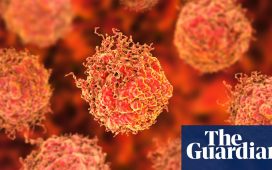A Maryland mother who lost her son to sepsis is now fighting for increased protocols in hospitals, as the cruel disease continues to kill one American every 90 seconds.
Lochlin DeSantis was just five years old in January 2020 when he came down with the flu. But what is usually a relatively harmless illness turned into a far more sinister disease.
Within two days of the onset of his sore throat and fever, he became unable to walk – moving his legs were oddly agonizingly painful.
Just a day later, Lochlin started losing consciousness – resulting in a frantic rush to the local hospital.
Devastatingly, Lochlin – who his mother describes as an ‘old soul’ was dead within 12 hours.
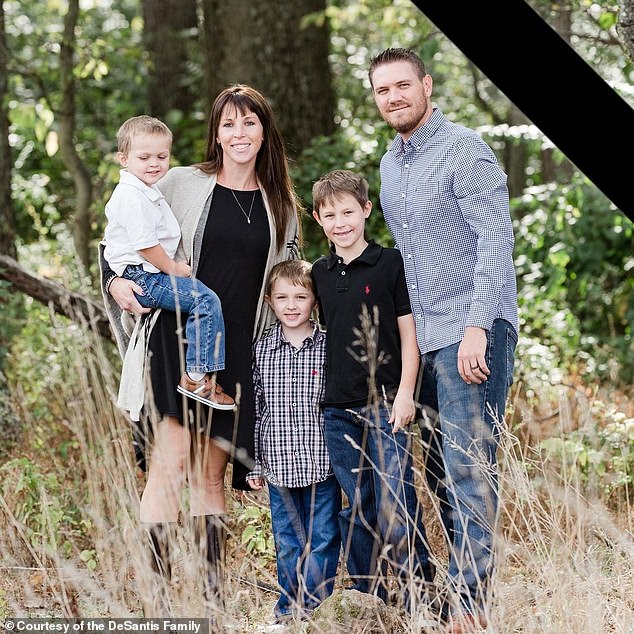
Brooke DeSantis described her son, Lochlin (middle) as an ‘old soul’ who loved giving food to homeless people and longed to volunteer
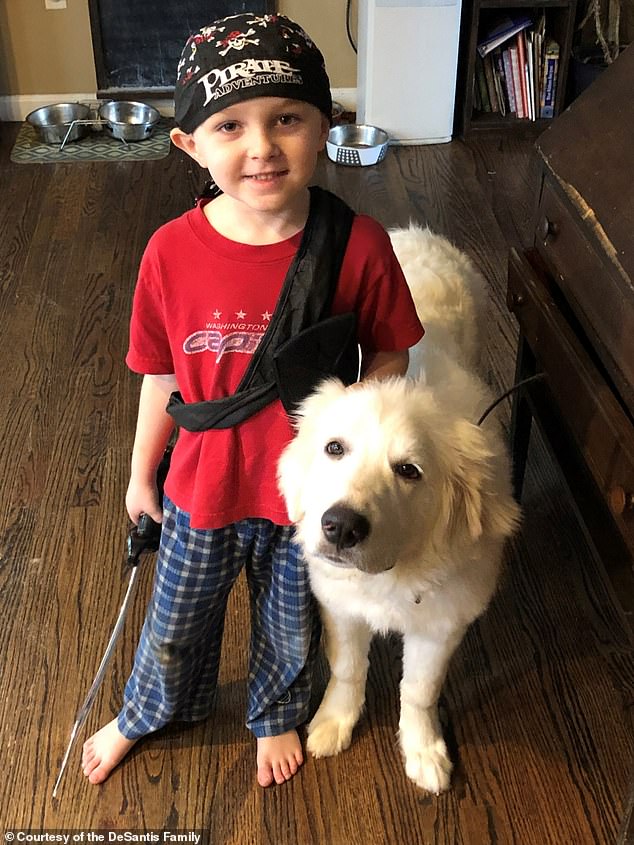
Lochlin came down with the flu on a Friday and quickly took a turn for the worse. By Monday, he went into organ failure and passed away at just five years old
The little boy’s body was attacked by sepsis, an extreme immune system over-reaction that’s responsible for one in three hospital deaths and has been dubbed a ‘silent killer.’
‘Now it’s my mission to see that people have access to anything and everything to prevent the spread of infectious disease to keep their family safe,’ Lochlin’s mother, Brooke DeSantis, a nurse, told DailyMail.com.
‘Sadly we weren’t able to do that with ours.’
Sepsis is a medical emergency that is caused by the body’s extreme reaction to an infection. It occurs when chemicals released in the bloodstream cause the immune system to go haywire.
Instead of sending infection-fighting white blood cells to attack a foreign invader, it targets healthy tissues and organs such as the limbs and the lungs and kidneys.
Infections that lead to sepsis most commonly start in the skin, urinary or respiratory tract, lungs, or digestive system, but almost any infection can lead to sepsis – starting in wounds as innocuous as paper cuts.
According to charity Sepsis Alliance, half of all cases are from an unknown pathogen.
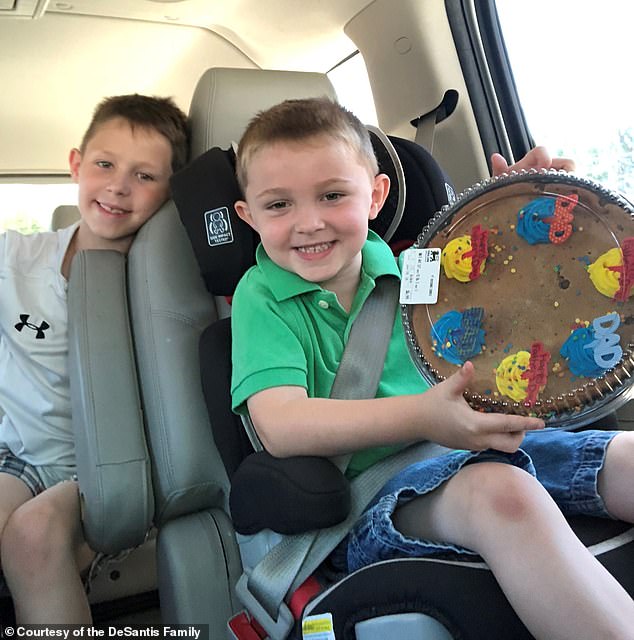
‘He had a love of football and family, his friends, hockey. He was one of the kindest kids that I’ve ever met,’ Lochlin’s mother, Brooke DeSantis, told DailyMail.com
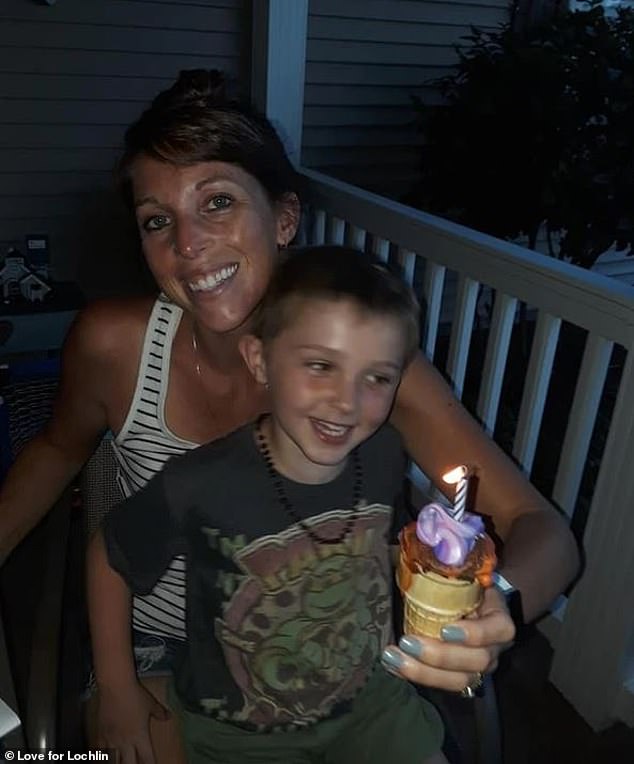
Mrs DeSantis is now working to raise awareness of sepsis and increase access to vaccines like the flu shot to prevent the disease
Mrs DeSantis said that despite Lochlin’s urgent care physician assuring her his symptoms were normal for the flu, a nagging feeling in the back of her mind gave her pause.
‘Even though I felt like I shouldn’t have listened to [the doctor’s] advice, I trusted him. I trusted that I should just go home,’ she said. ‘And that’s exactly what I did. He was a higher licensed medical professional than I am, so I took his advice like he said and took Lochlin home.’
‘And that was probably the worst thing that could have happened.’
Sepsis impacts 1.7 million Americans every year, according to the CDC.
Every year, 350,000 Americans die due to sepsis, or one every 90 seconds.
Sepsis Alliance estimates that 75,000 US children develop sepsis every year, roughly 200 a day. This includes more than 5,000 deaths, or 18 every day.
It’s the leading cause of death in US hospitals, according to Sepsis Alliance, and it leads to 35 percent of hospital deaths. However, 34 percent of Americans have never heard of it.
Certain groups are more susceptible to the condition, including adults over age 65, children under one year, patients with weakened immune systems, and those who have had sepsis in the past. However, anyone can get it.
There is no single test, but doctors look for signs of infections with measures such as blood tests. Sepsis can progress to septic shock, which is characterized by a severe drop in blood pressure.
Signs of septic shock, according to the Mayo Clinic, include not being able to stand up, extreme fatigue or not being able to stay awake, and a major change in mental status.
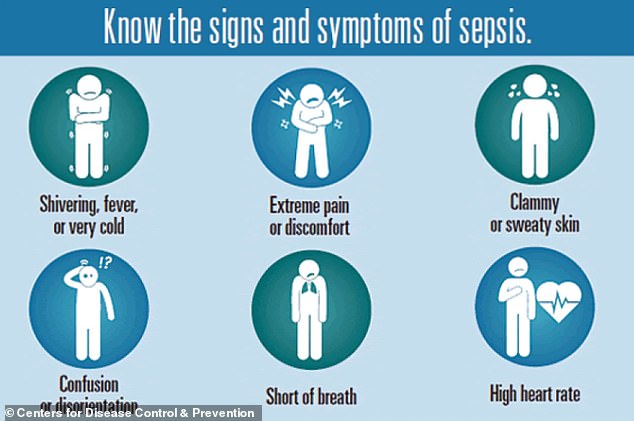
Signs of sepsis closely resemble the flu, which makes it extremely difficult to catch early
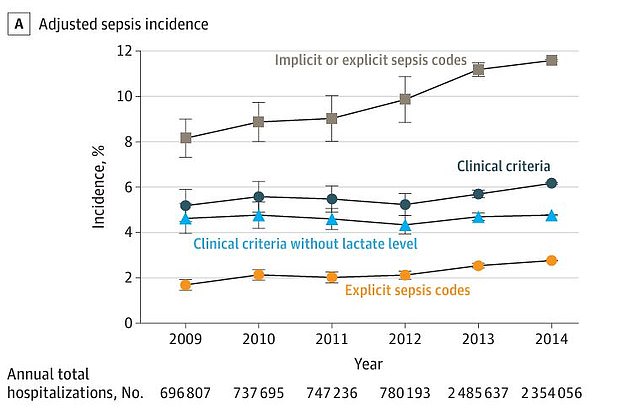
Data from JAMA and the CDC has found that sepsis is on the rise, and most US hospitals do not have dedicated protocol
For every hour that treatment is delayed, the chance of death increases by four to nine percent.
Mrs DeSantis said that many of these deaths could be due to few doctors recognizing the symptoms, which can closely resemble the flu. This makes it extremely difficult to spot early.
‘It changes so quickly, and that’s what the issue is,’ she said. ‘Lochlin was tested for flu, and it came back positive, but the chief reason as to why it was there, they didn’t touch base on it. It comes down to dismissing the patient and not treating them for the cause as to why they were there.’
‘And with that, a lot of the physicians, because they have to see so many patients within a timeframe, they’re rushing through patients and they’re missing the true signs that they should be looking for.’
‘That’s where I wanted to see that changed, not just for one location or a hospital but for the entirety of the state because when you go in as a patient or a loved one looking after a patient, you want to see that all the answers are there.’
Sepsis Alliance has also found that cases are on the rise, which could in part be due to a lack of cohesive care.
The US does not have a national sepsis protocol, and 2023 CDC data found that more than 1,400 hospitals – about one-quarters – in the US do not have a sepsis program.
‘Doctors are not provided with enough information to help them to diagnose sepsis,’ Dr Steven Simpson, Professor of Medicine at the University of Kansas and Chair of the Sepsis Alliance, previously told DailyMail.com.
‘There’s no catchy phrase to help doctors and hospitals look out for it, like they have in other countries.
‘Every hospital in the country should have a sepsis committee, a sepsis quality improvement program and organize their facility so it is primed to spot and treat sepsis. Currently, this is absolutely not the case.’
After Lochlin’s death, Mrs DeSantis and her husband, William, established the charity Love for Lochlin, which aims to raise awareness and provide education about sepsis to medical professionals and members of the community.
One of its major victories is passing Lochlin’s Law in Maryland. According to the legislation, starting January 1, 2025, each hospital and urgent care center in the state will be required to ‘implement an evidence-based protocol for the early recognition and treatment of a patient with sepsis, severe sepsis, or septic shock that is based on generally acceptable standards of care.’
It will also involve ‘requiring a speciality psychiatric hospital to establish a certain process; and requiring hospitals and urgent care centers to require periodic training in the implementation of the protocol for certain staff.’
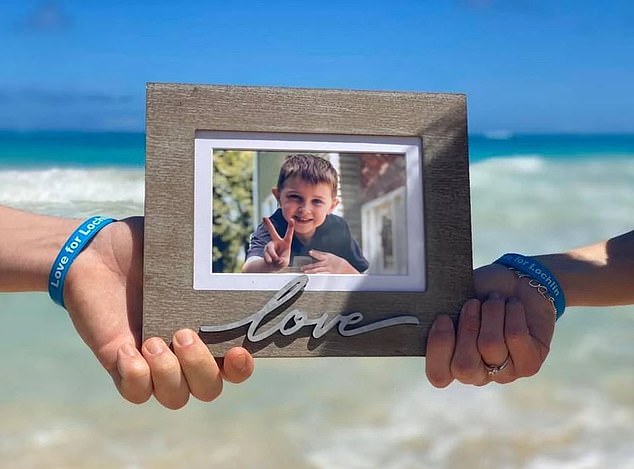
Mrs DeSantis and her husband, William, started Love for Lochlin, which raises awareness for sepsis and provides education to community members and physicians
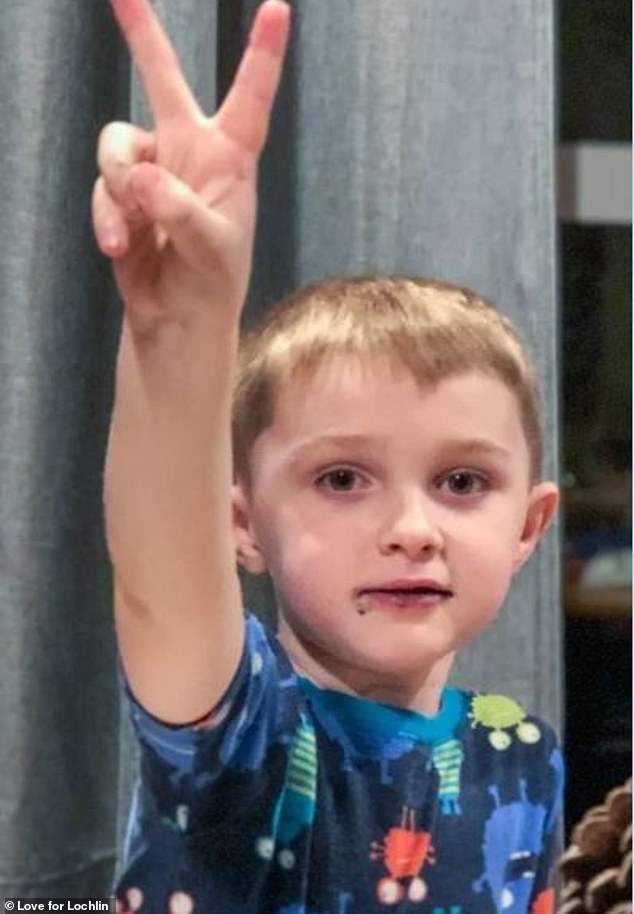
‘It’s seeing that they have access to what we couldn’t get for our son,’ Mrs DeSantis said. ‘Every person that we help, that’s how the love of Lochlin and his memory survive with all of us’
‘So if a patient were to come in, and their vitals are out of range two out of the three, it automatically pops for them to have to do further testing to rule out sepsis,’ Mrs DeSantis said.
‘Or to see that if they have it, that they immediately are transported to the hospital, not themselves, but a medical unit is transferring them there.’
Lochlin’s law will be signed by Maryland governor Wes Moore on May 16 and will go into effect on October 1.
Mrs DeSantis noted that the legislation is the first of its kind, as some other state regulations, such as Rory’s Regulations in New York, only pertain to hospitals and adult patients.
Lochlin’s Law will include hospitals, urgent cares, and specialty care facilities like nursing homes and detox facilities. It also applies to children.
Love for Lochlin is also working to increase access to flu vaccines to prevent the illness from progressing to sepsis in the first place.
‘It’s seeing that they have access to what we couldn’t get for our son,’ Mrs DeSantis said. ‘Every person that we help, that’s how the love of Lochlin and his memory survive with all of us.’
‘It’s a village that’s fighting right now, not just us.’






